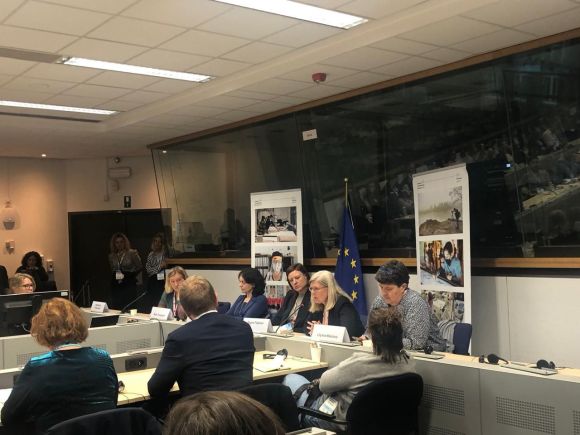
Challenges faced by Bulgarian and Polish NGOs, and Norway’s Active Citizen Fund Supporting Civic Participation
On October 10th, the European Commission's Albert Borschette Conference Centre in Brussels hosted the workshop Every Voice Matters: Experiences in Citizen Engagement at Local Level. The event highlighted successful initiatives funded by the EU Citizens, Equality, Rights and Values (CERV) programme and the EEA and Norway Grants' Active Citizens Fund. These funds play key roles in supporting civil society in Europe, especially in countries where democracy faces challenges.
Representatives from Bulgaria and Poland shared the difficulties faced by NGOs. Iliyana Nikolova, CEO of the Workshop for Civic Initiatives Foundation in Bulgaria, noted that there are around 20,000 NGOs in the country. However, many regions lack a strong civil society presence, especially in poorer areas. About 60% of Bulgarian NGOs have annual budgets of less than $10,000, with most funds going to volunteers rather than building professional capacity. This limits their effectiveness and leads to a shortage of human resources. NGOs also face smear campaigns and political influence, particularly in social services. Restrictive government policies, such as the banning of LGBT-related content in schools further hinder democracy and human rights efforts.
One successful project in Bulgaria involved training local officials alongside Roma representatives to combat anti-Roma sentiments. Based in Plovdiv, the project was seen as a new way to bridge divides and foster cooperation.
In Poland, the situation is similar. Krasowska Magdalena, capacity building and communication manager of the Active Citizens Fund, highlighted that larger cities tend to have more established NGOs, while rural areas struggle. Smaller NGOs are often viewed with suspicion, particularly in conservative regions. Despite initiatives like the Active Citizen Fund, grants are often minimal, around €5,000. NGOs in Poland face similar issues of limited autonomy and reliance on government funding. Krasowska noted a "learned helplessness" and a passive attitude towards democracy in many regions.
One key project in Poland focused on LGBTQ+ rights in schools. This project aimed to develop policies that would promote respect for all students, regardless of their backgrounds. The initiative was partly a response to the government's creation of "LGBT-free zones," which sparked protests across the country.
Ragna Fidjestol, Director of the EEA and Norway Grants, emphasized that Norway’s Active Citizens Fund operates independently from the government. This allows for more equitable distribution of resources to NGOs, especially in rural areas. The fund focuses on long-term investments in civil society, making it more resilient and sustainable.
Despite these efforts, access to adequate funding remains a challenge for many NGOs across Europe. Both the CERV programme and the Active Citizens Fund are making progress, but more work is needed to ensure the survival and growth of civil society, especially in regions where democracy is fragile.
By Tamar Sikharulidze



